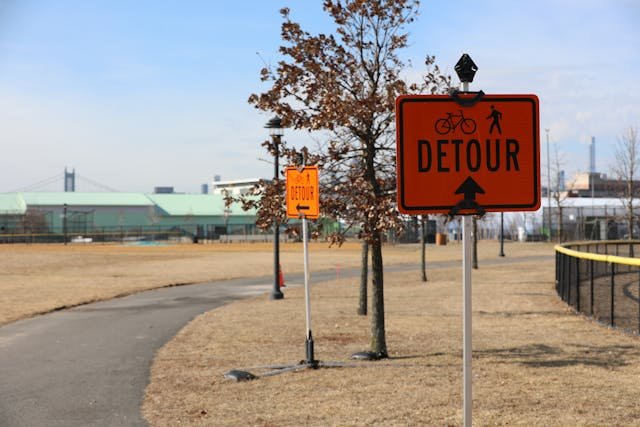Intro
Travel in 2025 is less about checking off icons and more about discovering detours and intentional souvenirs. This guide explains what detour destinations and “goods getaways” are, why they’re booming, how to plan one that feels effortless, and exactly where to go next — plus real booking CTAs you can use now. (Links to live rates & packages included.)
What you’ll learn in this guide
- What detour destinations and goods getaways mean — and why both are exploding in popularity. (expedia)
- The psychology and data behind the trends, with examples of rising detour spots and sought-after local goods. (expedia)
- How to plan, book and pack for these trips — including budgeting, timing, and sustainable shopping tips.
- Ready-to-use CTAs to check live prices and booking options (link included).
- A long FAQ to answer common planning questions and boost your SEO.
What are Detour Destinations — and why they matter now?
A detour destination is a lesser-known place people choose instead of an overcrowded classic. Rather than battling crowds at the most famous sites, modern travellers are opting for nearby alternatives that offer the same vibe — but with fewer lines, friendlier prices, and more local character. This shift is one of the headline travel patterns of 2025, driven by data showing growing search interest in alternatives to mainstream hubs. (expedia)
Why it matters: detour choices offer better value, more authentic experiences, and a lighter footprint on overstimulated communities — all reasons travellers and destination managers are nodding in favour of detours this year.
What are Goods Getaways?
Goods getaways are trips planned around finding and bringing back distinctive local items — think region-specific skincare from Japan, artisanal chocolate from Switzerland, traditional textiles from Oaxaca, or a signature spice blend from Morocco. Travellers increasingly plan visits with specific purchases or shopping experiences in mind, supporting small businesses and taking home meaningful souvenirs. This behaviour has been highlighted in recent industry research and consumer-insights writing on 2025 travel patterns. (Visa Corporate, expedia)
Why shoppers are traveling for goods:
- The hunt for unique, high-quality items that are hard to source at home.
- The social value of bringing back curated gifts and stories.
- The appeal of combining an experience (workshops, markets) with tangible takeaways.
Trend signals: the data behind the buzz
Industry analyses, travel news coverage and recent trend reports point to clear signals:
- A major travel trends report compiled from first-party booking and search data identified detour destinations among the top travel behaviors of 2025. (expedia)
- Interest in island travel is up significantly year-over-year, reinforcing the appetite for escapes that feel distinct and restorative.
- Coverage across trade press and consumer outlets highlights both detour destinations and goods-centred travel as growth areas for 2025.
(If you’re making content, using those data-backed trends in your copy builds credibility and urgency.)
Top Detour Destinations for 2025: inspiration list
Below are detour-style suggestions that capture the “same spirit, fewer crowds” idea. Each brief entry explains why it’s a good swap and how to make the most of it.
- Reims, France — detour from Paris
Why go: Champagne houses, Romanesque cathedrals, and a calmer pace than central Paris. Great for food and bubbly-focused weekends. (expedia)
Booking tip: Look for combined train + hotel packages and plan weekday visits to tasting rooms. - Brescia, Italy — detour from Milan
Why go: Renaissance architecture, access to Lake Garda, fewer international crowds but rich Italian culture. (expedia) - Cozumel, Mexico — detour from Cancun
Why go: World-class diving and a relaxed island pace — ideal for water-sport lovers escaping busier beach resorts. (expedia) - Santa Barbara, California — detour from Los Angeles
Why go: Mediterranean vibes, wineries, and an upscale-but-unhurried coastal scene. Great for romantic weekends. (expedia) - Girona, Spain — detour from Barcelona
Why go: Medieval streets, Catalan cuisine, and quieter exploration with easy day-trip access to coastal towns. (expedia) - Fukuoka, Japan — detour from Tokyo
Why go: Excellent local food scene, easy access to Kyushu’s countryside, and a friendly low-key urban feel. (expedia) - Krabi, Thailand — detour from Phuket
Why go: Limestone karsts, island hopping, and beaches that feel less touristed than neighbouring hotspots. (expedia) - Canmore, Alberta — detour from Calgary
Why go: Rocky Mountain charm with outdoor activities and fewer crowds than Banff during shoulder seasons. (expedia)
(These examples reflect recent lists and reporting in travel trend briefs and destination round-ups.) (PR Newswire, TravelPulse)
Top “Goods Getaways” ideas — what to hunt for and where
If you want to plan a trip around a specific purchase or local craft, these examples hit the sweet spot between experience and take-home value:
- Japan (Kyoto/Tokyo area) — artisanal skincare, traditional ceramics, and hand-crafted paper.
- Switzerland & Belgium — chocolate and confectionery mastery (workshops and factory tours available).
- France (regional markets) — perfumes from small parfumiers and handcrafted culinary goods.
- Morocco (Marrakech, Fes) — leatherwork, rugs, and spice blends.
- Mexico (Oaxaca) — textiles, mezcal, and pottery workshops.
- Indonesia (Bali & Java) — natural skincare, batik, and local coffee varieties.
Planning tip: Combine a market tour or workshop into your itinerary to learn how products are made — it makes the purchase more meaningful and ensures quality. (Visa Corporate)
How to plan a Detour-Destination trip (step-by-step)
- Pick the vibe, not just the name. Decide whether you want beaches, mountains, culture or food — then look for secondary cities or regions that match that vibe.
- Search seasonal windows. Shoulder seasons often provide perfect weather with fewer visitors and better prices. Industry trend reports show travelers are prioritizing off-peak timing for richer experiences. (expedia)
- Check connections and transfers. Some detours are best reached by train or short regional flights; confirm schedules before committing.
- Book a local experience. Reserve a local guide, a tasting, or a craft workshop in advance to guarantee availability.
- Be flexible with lodging. Smaller hotels and guesthouses often add to the detour charm and can include personal recommendations for hidden gems.
Quick booking CTA (live options): Check current hotels, flights and packages here
How to plan a Goods-Getaway (shopping-focused itinerary)
- Research the local specialities — before you go, know what the place is famous for and where to find authentic items.
- Map markets and shops — prioritise local markets and family-run ateliers over tourist stalls.
- Consider workshops — learning to make an item (chocolate, ceramic glazing, textile weaving) transforms a purchase into a memory.
- Understand customs — check rules for bringing food, alcohol, plants, or animal products back home.
- Pack smart — bring protective packing materials and a collapsible duffel to carry fragile goods.
- Look for receipts and authenticity certificates for higher-value purchases to streamline any potential resale or warranty claims.
Quick booking CTA: Find relevant flights and lodging for your shopping trip here — (https://expedia.com/affiliate/t0kOHXp).
Budgeting & timing: how to save while savoring
- Book mid-week when possible — many smaller hotels lower rates on weekdays.
- Use shoulder seasons for better weather and lower prices without sacrificing the experience. (Travel Age West)
- Compare package options that bundle flights and hotels for savings — often these packages include flexible change policies that protect your deposit.
- Set a shopping budget for goods getaways to avoid overspending on impulse souvenirs. Tip: reserve a percentage of your total travel budget for purchases and fees.
Live deals check: Compare current package and bundle options here
Sustainable & respectful detour travel: quick rules
- Choose local businesses — eat at small restaurants, buy from makers, and book local guides.
- Avoid single-use purchases and favour goods that last or are consumable in a way that supports local economies.
- Respect local regulations on protected species, handicrafts made from restricted materials, and cultural artefacts.
- Leave no trace in natural detour settings: pack out what you bring in and stick to marked trails.
Industry research points to a sustained focus on sustainable choices as travellers pursue slower, more meaningful journeys. (expedia)
Packing checklist for detour + goods getaways
- Collapsible, padded duffel for fragile goods
- Lightweight scale for luggage weight checks (avoid surprises at the airport)
- Extra-quality packing wrap / bubble wrap (or buy locally at markets)
- A small toolkit of zip ties, tape, and sturdy post-trip boxes (if you plan to ship items home)
- Travel insurance note: ensure coverage includes purchased goods if you’re making high-value buys
How to handle customs, shipping, and taxes on goods
- Research your country’s customs limits and restrictions before buying. Certain goods (food, animal products, antiques) may be restricted or require special permits.
- If an item is big or fragile, consider shipping it home from a reputable local shipper — this is often safer and sometimes cheaper than over packing.
- Keep receipts and any authenticity paperwork — it helps with customs and with reselling or repairs later.
Real-world inspiration: sample itineraries
A 5-day detour + goods getaway (European vibe, fewer crowds)
Day 1: Arrive in the regional airport, check in to a family-run boutique hotel.
Day 2- Guided walking tour of town + evening at a local bistro.
Day 3: Market morning — workshop in the afternoon (pottery or perfume).
Day 4: Day trip to nearby countryside for a scenic detour.
Day 5: Final market visit, pack and depart.
A 7-day island detour + souvenir hunt (Asia)
Days 1–2: Arrive, settle into a beachfront guesthouse.
Days 3–4: Local artisan markets, purchase skincare or textiles.
Day 5: Boat day to smaller islands for snorkel + local lunch.
Days 6–7: Relaxed mornings, final shopping and departure.
Need lodging and flights for either? Check live options and package rates here
SEO notes for publishers (use these on your site)
- Use long-tail headlines that pair detour destination names with “best time to visit” and “where to shop.”
- Include FAQ schema for the questions below — it helps search engines show rich results.
- Add a “deals” or “book now” box at the top of the article linking to live rates (link provided in this guide).
- Update the post seasonally and mark the last-updated date to improve trust and CTR.
FAQs — everything travelers ask about detours & goods getaways
Q: What’s the difference between a detour destination and a hidden gem?
A: A hidden gem can be any lesser-known spot, while a detour destination specifically replaces a nearby mainstream destination and offers a comparable experience with fewer crowds or better value. Trend research shows travelers are actively swapping major hubs for nearby detours in 2025.
Q: Are detour destinations more expensive or cheaper?
A: Often cheaper — detours usually have lower accommodation and dining costs, especially outside peak season. However, unique experiences or limited-capacity workshops may carry a premium.
Q: How do I ensure authenticity when shopping on a goods getaway?
A: Buy from recognised ateliers, ask about production methods, request receipts or authenticity certificates for higher-value items, and consider attending workshops where you can see the making process.
Q: Should I buy travel insurance for goods getaways?
A: Yes. If you’re purchasing high-value items (fine jewelry, art, expensive electronics, or antiques) or plan to ship goods, make sure your policy covers purchases and any shipping delays or damage.
Q: Can I ship items home instead of carrying them?
A: Absolutely; for fragile or oversized purchases, shipping from the destination via a reputable courier is often safer. Check shipping costs and customs documentation ahead of time.
Q: Where can I find reliable trend data to choose a detour destination?
A: Look to industry trend reports and travel data analyses published by major research teams and reputable travel publications for signals on rising destinations and categories. Recent trend briefs identify detours and goods-focused trips as top behaviors for 2025.
Q: Any quick safety tips for shopping markets?
A: Keep valuables secure, be mindful of pickpocket hotspots, agree prices before accepting service, and inspect items carefully before buying.
Q: How far in advance should I book a detour trip?
A: For peak events or workshops, book 2–3 months ahead. For quiet-season detours, 2–6 weeks often suffice, but flights may be cheaper when booked earlier.
Example CTAs you can use in your post (copy-paste friendly)
- “Compare current hotel & flight options for this detour → here
- “Check live package rates and dates → here
- “See availability and book workshops and hotel stays →here
Place one CTA above the fold, one midway (after a top destination list), and one near the end of the article for best conversion.
Further reading & authentic sources
(These articles and industry briefs informed the trends, and are great for linking within your post as supporting sources.)
- Data-driven travel trends analysis and the 2025 trend roundup. find here
- The 2025 Island Hot List and island-interest insights.
- Corporate insights on goods-focused travel behaviour.
- Trade and newsroom coverage about rising detour destinations. ( Forbes)
(Use these as “further reading” links within your article to show authority and offer readers background context.)
Quick publisher checklist before you hit publish
- Add an H1 and at least three H2s (we used many above).
- Insert one CTA (link to live rates) at top, one inside the content, and one at the end. Example CTAs included above.
- Implement FAQ schema for the above questions.
- Add outbound links to the industry reports for credibility (sources listed in “Further reading”).
- Add a clear, short disclaimer (sample below).
Disclaimer (sample — paste as-is)
This article is for informational purposes only. Prices, availability, and policies change frequently; always confirm current rates, booking conditions, and local regulations before making travel arrangements. The links provided lead to third-party booking pages and resources; please review terms and protections before purchasing.
Final thoughts
Detour destinations and goods getaways aren’t just travel buzzwords — they’re practical ways to get more out of a trip: richer local interactions, better value, and souvenirs that truly tell a story. Whether you’re a slow-travel planner or someone who loves to hunt the perfect local find, 2025 is shaping up as the year to go off-script and bring home something unforgettable.
Ready to check live hotel, flight and package options for the detour or goods getaway on your list? Start here




